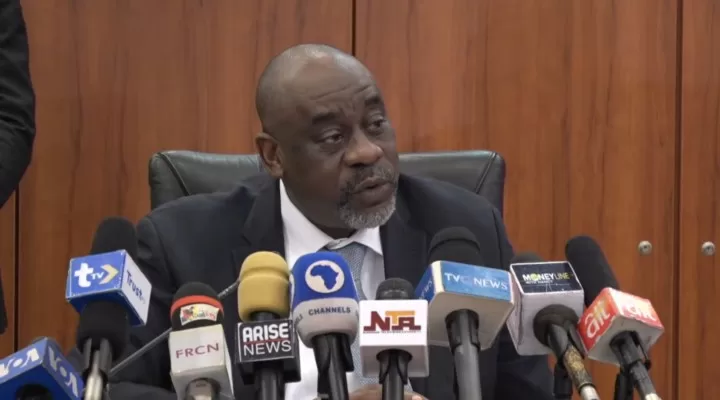Barely a month after a US-based financial service firm JP Morgan slammed the Central bank of Nigeria, CBN over Nigeria’s forex reserve, Fitch Ratings has picked holes in the estimation by the apex bank that the country’s net forex reserves is around $33 billion.
A country’s Net forex reserves is the deduction of its foreign currency liabilities from gross foreign currencies reserves.
Recall that JP Morgan had in a report released in August claimed that Nigeria’s forex reserve stood at less than $4 billion.
“Based on partial information from the audited financial accounts, we estimate that CBN’s net FX reserves were around US$3.7bn at the end of last year, from US$14.0bn at end-2021,” the firm said in a report last month.
The apex bank however picked holes in the report insisting that the country’s forex reserves is way beyond what JP Morgan estimated. Nigeria’s forex reserves stand at over $33 billion, the apex bank said.
According to the clarification provided by Hassan Mahmud, Director, Monetary Policy Department, CBN, the fluctuations, liabilities, and encumbrances have not really affected the country’s reserve contrary to JP Morgan’s claim that the reserves have crashed to less than $4 billion from $11 billion by the of 2021.
“We also read the JP Morgan numbers in-house and we didn’t panic over that. That’s not the first time we are seeing people, institutions reeling out numbers; they must have their intentions to do that, whether to rouse market sentiments, whether to mislead the public,” Mahmud said.
He stated further, “But the central bank has tried as much as possible to be transparent. What I will say about those numbers is that it is just funny in the sense that number one, reserves like any account balance, is a flow; there are changes that go within it at any particular time.
“Two, even if you have outstanding liabilities, you don’t mark the outstanding liabilities to market on a day and say this is your net balance.
“We have the numbers there. The central bank’s reserves are on our bank net. Yes, the figure you see today may not be exactly to the last decimal point but you have that picture that you are seeing there.
“We have $33bn, there is IMF facility there, the SDR is also there, we have the JP Morgan numbers that you mentioned, we have forwards, they are all there.”
Fitch however estimates in its report that Nigeria’s currency swaps represent 30 percent of its total reserve worth between $10 billion and $12 billion as of the end of 2022.
The report stated, “Fitch estimates, partly based on our survey data, that CBN swaps with domestic banks were $10bn – $12bn at end-2022, and are likely to remain close to that level, but there is less visibility on swaps it may have with international counterparties.
“We anticipate that most of these domestic swaps will continue to be rolled over, reflecting incentives for banks to invest the naira received in high-yielding sovereign securities and the sector’s limited reliance on swaps for foreign-currency liquidity given its sizeable foreign-currency placements with international banks.”
The firm said further, “When we affirmed Nigeria’s rating at ‘B-’ with a Stable Outlook in May, we stated that external finances were a key rating sensitivity. We estimated that around 30 per cent of Nigeria’s gross reserves (which were $37bn at end-2022) comprised swaps with domestic banks, although we considered that some other reserves could well be encumbered.”
The firm’s warning that the continued depletion of the forex portends serious danger to the country’s economy resonates with analysts’ opinion that the free fall of the Naira in recent weeks is due to the high fluctuations in its foreign reserves.
While the CBN blames forex traders for the naira’s continued fall in value to other international currencies, experts insist that the problem will continue as long as nothing concrete is done by the country’s fiscal and monetary managers to shore up the forex reserves.
The Nigeria National Petroleum Company, NNPC Limited recently secured a $3 billion emergency crude repayment loan from the African Export-Import Bank, Afreximbank, to support the naira and stabilise the foreign exchange market in the country.
Experts applauded the measure but insisted that such only amounts to flogging the problem without dealing with the root cause.
Discover more from The Source
Subscribe to get the latest posts sent to your email.








